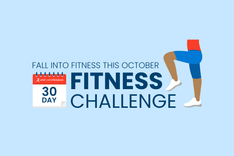13 reasons to make yoga a part of your daily routine

Ready to start your yoga journey? Join our yogi instructors in the Lifestyle section of the Low Carb Program and follow their guided yoga classes – there is something there for all abilities. Here are 13 reasons why you should try and make yoga part of your daily routine.
1) Improve your sleep
Assumed in part, to be a product of decreased stress, yoga is excellent for sleep. Research has shown that daily practice increases the secretion of melatonin in the blood [1]. The hormone melatonin is used to regulate sleep. This might explain why yoga is so effective for increasing the quality of sleep.

2) Relieve chronic pain
Having to deal with chronic pain can be a debilitating and frustrating ordeal. Chronic pain can be the result of a multitude of different issues and can be a serious detriment to health. Yoga has been shown to help alleviate chronic lower back pain as well as other chronic conditions [2].
3) Helps with stress relief
It’s a stressful world we live in. Meetings, deadlines, financial difficulties and a whole myriad of societal pressures are but a few of the day-to-day stressors that require our attention.
Waking up with the sense of impending doom concordant with these types of stressors is all too common- but it doesn’t have to be.
Hitting the yoga mat in the morning may help more than just your muscles. Studies have shown that even twice-weekly yoga practice can significantly improve stress and feelings of depression [3]. Research on individuals with depression has also shown that regular practice can lower the amount of the stress hormone cortisol in the blood [4].
4) Improve your awareness of breath
Practicing regular yoga can do wonders for the way we deal with our emotions. Yoga brings awareness and control to our breath patterns, allowing us to notice when our emotions are affecting our breath, and using the breath to calm our emotions. Sometimes a deep breath is what separates you from saying something you will regret! The more you can connect with your breath, the clearer you think, even in difficult situations.

5) Helps you to live in the present
We all live busy hectic lives, usually worrying about one thing or another, whilst attached to some form of technology! One of the key benefits of yoga is that is allows us to take time out from the rest of the world, detach from the stress and worries and instead focus on your body, mind and breath in the present.
6) Improves flexibility and balance
As we get older, the chance of a fall increases dramatically. Improving the balance of elderly people can be a very effective way to decrease the risk of a fall. Research has shown that regular practice can increase balance [5-6] and decrease the risk of a fall in elderly people [7].
7) Can help with weight loss
You’d assume that weight loss through the practice of yoga would occur as a result of the physical exercise taking place. Although yoga is technically counted as physical exercise, it is less intensive than other forms of exercise so you may want to consider higher intensity exercise if physical exertion is your main goal.
Yoga’s weight loss power comes from its ability to increase the individual’s mindfulness. This is significant as being mindful of the foods you consume can help you to stay on track with your low carb lifestyle and make it less likely for you to have a moment of weakness.
8) Provides you with ‘me time’
In this day and age, we often find ourselves rushing around after others and trying to tick of the many tasks on our long lists. Finding time to get away from the daily madness and focusing on ourselves if often not a priority. By committing to practicing yoga on a regular basis, you will not only reap the benefits listed above, but it can do wonders for our mental health. Even just 15 minutes is better than nothing. If you have been inspired to begin your practice, try one of our yoga classes on the Low Carb Program.
9) Improves strength
Yoga can often be disregarded when it comes to exercise, but this is not the case. Yoga is a full body workout challenging every muscle in our body. Whether you are a beginner or more advanced in your yoga, it involves being able to carry out poses and movements using our own body weight, meaning it helps to build strength in our bodies where we most need it.

10) Helps to reduce inflammation
In addition to being relaxing, deep breathing has been proven to physiologically impact the heart, brain, digestion, immune system—and maybe even the expression of genes. Deep breathing also alkalinizes the body, keeping it balanced in its naturally slightly alkalinized state.
11) Become a calmer person
Practicing regular yoga can do wonders for the way we deal with our emotions. As yoga focuses on the awareness and control of our breath patterns, it helps us to notice when our emotions might be affecting our breath; it teaches us how to use our breath to control our emotions and stay calm. Awareness of breath can often prevent us from saying something we regret in the heat of the moment.
12) Improves cardiovascular health
Various research has shown that yoga improves blood pressure, body weight, lipid profile and psychosocial stress, all of which are risk factors for cardiovascular disease [8].
13) Opens up a new community of people
As you begin to practice yoga you will open up the opportunity to meet a brand new community of people who share a common interest.

Try a simple asana, or posture
The downward dog and sun salutation are simple yoga asanas, or postures, perfect for every level of yoga experience. Start with these as you build yoga into your routine. Take a look at our yoga classes for inspiration.
Practice yoga several times a week
Try to make a routine of practicing yoga. Aim for a minimum of three times a week.
Track your mood
Track your mood as you incorporate yoga into your lifestyle to see if it has a beneficial impact on your health.
References
https://www.ncbi.nlm.nih.gov/pubmed/15165407/
https://annals.org/aim/fullarticle/718899
https://www.ncbi.nlm.nih.gov/pubmed/16319785/
https://www.ncbi.nlm.nih.gov/pmc/articles/PMC4784068/
https://www.ncbi.nlm.nih.gov/pmc/articles/PMC3995122/
https://www.ncbi.nlm.nih.gov/pmc/articles/PMC4728955/
https://www.sciencedirect.com/science/article/pii/S0003999310000286








